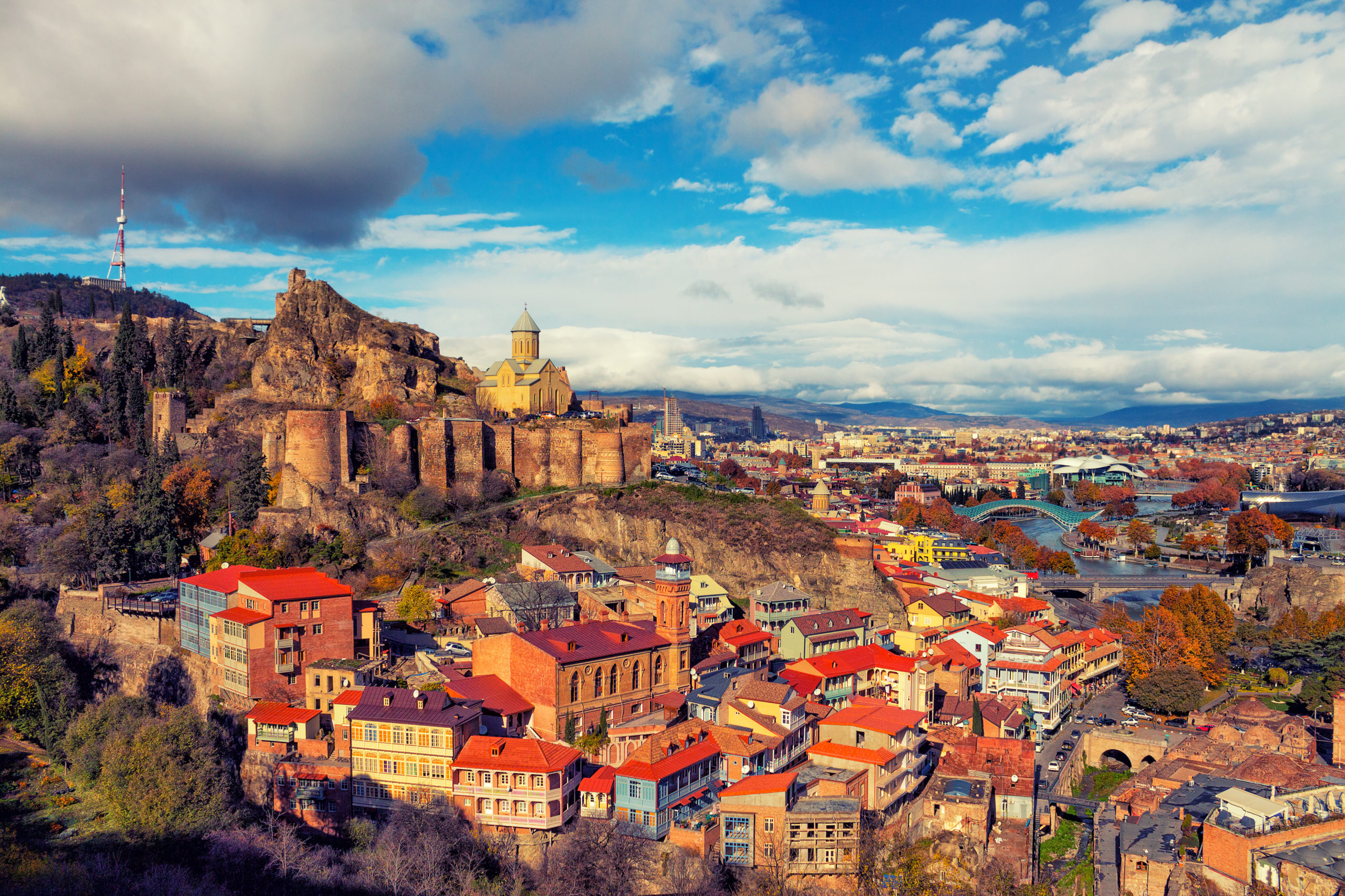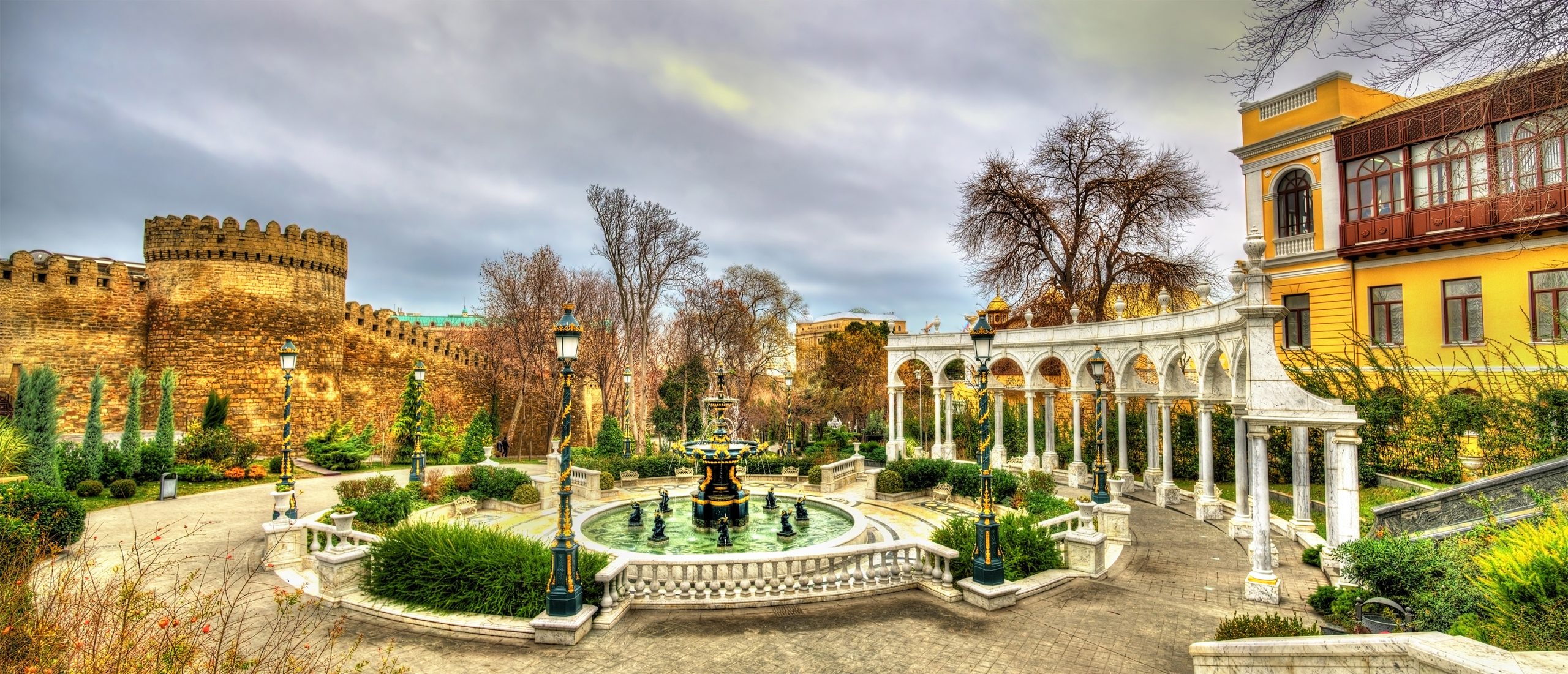Strategic Analysis Caucasus Brief
Bi-weekly review (12.02.-26. 02. 2023)
Tomáš Baranec
Armenia

Republic Square, Yerevan. Photo: Andrei Bortnikau/ Shutterstock.com
Armenia handed over the draft peace treaty to Azerbaijan
On February 16, Armenian Prime Minister Nikol Pashinyan announced that Armenia has submitted new proposals to Azerbaijan on a draft peace treaty, which he said Yerevan was ready to sign “at any moment.” However, Baku rejects any mention of Nagorno-Karabakh in the document.
Without elaborating on the document’s details, Pashinyan said the proposals were also presented to the OSCE Minsk Group co-chairing countries. “We are working on the draft with the following logic: to get a document ready to be signed at any moment,” Pashinyan said. “It’s clear that the document should be acceptable to Azerbaijan, as well, and we do hope that the progress achieved during the three stages of negotiations can be developed further.”
Earlier, Armenia’s National Security Chief Armen Grigoryan said that any peace document should contain international monitoring and mediation mechanism for future discussion between Artsakh Armenians and Azerbaijan. Official Baku slammed this statement and accused Yerevan of interfering in its domestic policies.
Azerbaijani president Ilham Aliyev repeated this position later in a joint panel at the Munich Security Conference. According to Aliyev, three key issues remain undecided in the peace agreement: the demarcation of borders between the two countries, the opening of transport links, and the rights and security of Nagorno-Karabakh’s Armenian population.
While Aliyev stated during the debate that Azerbaijan had agreed with international partners to discuss the “rights and guarantees” of Nagorno-Karabakh’s ethnic Armenian population, he stated in the interview that Nagorno-Karabakh could not be mentioned in the peace agreement.
Sources:
- Asbarez.com, „Armenia Submits New Proposals to Azerbaijan on Draft Peace Treaty“, https://asbarez.com/armenia-submits-new-proposals-to-azerbaijan-on-draft-peace-treaty/
- Caucasus Watch, “Armenia Hands Over the Draft Peace Treaty to Azerbaijan“, https://caucasuswatch.de/en/news/armenia-hands-over-the-draft-peace-treaty-to-azerbaijan.html
- AVETISYAN Ani, AGHAYEV Ismi, OC Media, Aliyev: any mention of Nagorno-Karabakh in the peace deal is unacceptable, https://oc-media.org/aliyev-any-mention-of-nagorno-karabakh-in-peace-deal-is-unacceptable/
EU officially launches civilian mission in Armenia
On February 20, the European Union reported it launched the civilian mission in Armenia (EU Mission in Armenia / EUMA) under the Common Security and Defense Policy (CSDP). A Council Decision formally established the EUMA on January 23, 2023. Through its deployment on the Armenian side of the Armenia-Azerbaijan border, the objectives are to contribute to stability in the border areas of Armenia, build confidence and human security in conflict-affected areas, and ensure an environment conducive to the normalisation efforts between Armenia and Azerbaijan supported by the EU.
“The total – exclusively civilian – staff of the EUMA will be approximately 100, including around 50 unarmed observers. The Operational Headquarters of the mission will be in Yeghegnadzor, in Armenia’s Vayots Dzor province. EEAS Managing Director of the Civilian Planning and Conduct Capability (CPCC) Stefano Tomat will serve as the Civilian Operation Commander, while Markus Ritter will serve as the Head of Mission,” the report added.
Meanwhile, Russia sees geopolitical motives behind the European Union’s civilian mission in Armenia geared to squeeze Russia out of the region, Russian Foreign Ministry Spokeswoman Maria Zakharova said in her reaction. “Regrettably, this is not the first time we see the European Union sparing no effort to win a foothold in our allied Armenia. We see solely political motives far from the interests of real normalisation of relations in the South Caucasus. It is sparing no effort to squeeze Russia out of the region and weaken its historic role as a key security guarantor. Baku’s openly voiced negative views about this initiative are being ignored,” she said, commenting on the deployment of the EU civilian mission to Armenia.
Sources:
- Caucasus Watch, „EU Officially Launches Civilian Mission in Armenia“, https://caucasuswatch.de/en/news/eu-officially-launches-civilian-mission-in-armenia.html
- Public Radio of Armenia, „Moscow sees the EU Mission in Armenia as an attempt to “squeeze Russia out of the region”, https://en.armradio.am/2023/02/20/moscow-sees-the-eu-mission-in-armenia-as-an-attempt-to-squeeze-russia-out-of-the-region/
Armenian Minister of Foreign Affairs warmly welcomed in Turkey
Armenian Foreign Minister Ararat Mirzoyan was welcomed warmly in Ankara by his Turkish counterpart Mevlut Cavusoglu on February 15, reports Eurasianet.org. The visit came shortly after Armenia sent humanitarian aid and rescue workers to its historical rival in a powerful gesture of goodwill following the deadly earthquakes that rocked southern Turkey on February 6.
At a joint news conference, Cavusoglu thanked Armenia for “extending a hand of friendship” in Turkey’s time of need, while Mirzoyan said that the sides had agreed to open their border to third-country nationals and diplomatic passport holders ahead of the 2023 tourist season.
Cavusoglu also said that he had reached agreements with his Armenian counterpart, accelerating the process of preparing the two countries’ infrastructure for opening ground communication between them. “Both sides have the results of the analysis and inspections of roads and bridges near the border crossings. The work is underway, and there are steps that we will take regarding the roads leading to the border checkpoints. Today we agreed to speed up the adoption of these measures,” the head of the Turkish Foreign Ministry said.
Cavusoglu recalled that this route is a historical silk road, and its restoration will be important. The Turkish Minister also noted the delivery of 100 tons of humanitarian aid from Armenia to the earthquake zone.
Back in Yerevan on February 16, the top diplomat told a government meeting that those rescuers would return home through the land border on the same day. He also reported to the cabinet that an agreement had been reached on restoring the historic Ani bridge on the Akhuryan (Arpacay) river, which forms part of the two countries’ border.
Prime Minister Nikol Pashinyan welcomed the announcement as a “symbolic step” and said Armenia already had preliminary designs for the bridge’s reconstruction. Pashinyan also hit out at domestic critics of the decision to send quake relief. “Millions of people in the neighbourhood of our country need support, and it is unacceptable for anyone to remain indifferent,” he said.
Sources:
- Caucasus Watch, „Ararat Mirzoyan Meets Mevlüt Çavuşoğlu in Turkey; Visits Earthquake-hit Areas“, https://caucasuswatch.de/en/news/ararat-mirzoyan-meets-mevlut-cavusoglu-in-turkey-visits-earthquake-hit-areas-1.html
- MGDESYAN Arshaluis, Eurasianet.org, “‘Disaster diplomacy‘ creates hope for Armenia-Turkey normalisation “, https://eurasianet.org/disaster-diplomacy-creates-hope-for-armenia-turkey-normalization
Ruben Vardanyan dismissed as a de facto state minister of Nagorno Karabakh
De facto President of Nagorno Karabakh Arayik Harutyunyan dismissed State Minister Ruben Vardanyan on February 23, announcing his decision during a cabinet meeting. Vardanyan blamed “immense outside pressure” for this outcome, which he and the Harutyunyan administration continuously denied for weeks.
“We have the outside world and an internal world,” Vardanyan said Thursday. “Evidently, the external pressure does not help us to have a domestic situation where we feel that we are able to fight against this pressure more strongly.” The now-former state minister said that he plans to remain in Artsakh and work through his “We Are Our Mountains” foundation. “I am aware that there are external pressures related to my remaining in Artsakh, but I should mention that not only will I not go, but I can’t imagine myself without Artsakh,” Vardanyan said. Voicing support for Harutyunyan, in his parting words, Vardanyan also emphasised the need to strengthen the system of governance.
Azerbaijan authorities, specifically President Ilham Aliyev, made Vardanyan’s dismissal a pre-condition for talks with Artsakh authorities over a resolution to the blockade of the Lachin Corridor, which has been closed since December 12. Aliyev reportedly reiterated the demand when he met with Prime Minister Nikol Pashinyan and Secretary of State Antony Blinken on February 18 in Munich.
According to political scientist Suren Surenyants, the main factor behind Vardanyan’s dismissal was not Aliyev’s demand but internal political processes in de facto Nagorno-Karabakh. “President Harutyunyan is an official without a core, who, under some influence, takes different steps and transforms his policy into different configurations. So let him say now why he brought Vardanyan to Artsakh and why he fired him,” Surenyants told JAMnews. Surenyants says these events have been brewing for a long time, and the apparent contradictions in the elite have been going on for at least two months.
Sources:
- Asbarez.com, “UPDATED: Artsakh President Dismisses State Minister Ruben Vardanyan, who Blames ‘Outside Pressures’“, https://asbarez.com/artsakh-president-dismisses-state-minister-ruben-vardanyan/
- JAM News, “ ‘Vardanyan was not fired at Aliyev’s request‘: opinion from Yerevan“, https://jam-news.net/dismissal-of-ruben-vardanyan/
UN Court Orders Azerbaijan To Unblock Lachin Corridor Amid Armenian Accusations Of „Ethnic Cleansing“
The United Nations’ highest court has ordered Azerbaijan to “take all steps at its disposal” to allow free movement of traffic along the only road between Armenia and the ethnic Armenian Nagorno-Karabakh region in Azerbaijan.
The legally binding 13-2 ruling by the International Court of Justice results from the latest legal skirmishes in a long-running feud between Armenia and Azerbaijan over Nagorno-Karabakh. Each country filed a case with the court, accusing the other of breaching a convention aimed at stamping out racial discrimination.
In the ICJ ruling, the court cited “shortages of food, medicines, and other life-saving medical supplies” that effectively deprived ethnic Armenians in the area of crucial care. Yerevan has described the blockade as an effort at “ethnic cleansing.” Baku officials deny that they are behind the blockade.
Wednesday’s ruling on the blocked road known as the Lachin Corridor came just over two years after the neighbouring nations ended a war in Nagorno-Karabakh that killed about 6,800 soldiers and displaced around 90,000 civilians.
Sources:
- RFE/RL, „UN Court Orders Azerbaijan To Unblock Lachin Corridor Amid Armenian Accusations Of ‘Ethnic Cleansing’ “, https://www.rferl.org/a/azarbaijan-un-court-unblock-lachin-corridor-karabakh-armenia/32283560.html
- CORDER Mike, ABC News, „UN court calls for end to Nagorno-Karabakh roadblock“, https://abcnews.go.com/Politics/wireStory/court-orders-azerbaijan-end-nagorno-karabakh-roadblock-97388003

Street in Icheri, Azerbaijan. Photo: maloma7/Shutterstock.com
Cargo transportation along the TRACECA corridor increased by 29.8%
In 2022, the cargo volume transported in the Azerbaijani part of the Europe-Caucasus-Asia transport corridor (TRACECA) was 51 million 420.6 thousand tons, and the cargo turnover was 12 billion 648.9 million ton-km, the Caucasus Watch informed.
Compared to 2021, an increase of 29.8% and 31.9% were observed in cargo transportation. 27 million 966.8 thousand tons of cargo, or 54.4%, were transported by road, 16 million 841.2 thousand tons, or 32.7%, were transported by rail, and 6 million 612.6 thousand tons, or 12.9%, were transported by sea. Transit cargo accounted for 26.5% or 13 million 634.6 thousand tons of cargo transported through the corridor.
TRACECA is a special project within the technical assistance framework provided to the European-Caucasus-Asia Transport Corridor-Commonwealth of Independent States (TASIS). It is implemented with the support of the European Union. The project was adopted at the conference in Brussels in May 1993 with the participation of 8 countries (5 Central Asian, Kazakhstan, and 3 Caucasian republics).
Sources:
-
Caucasus Watch, „Cargo Transportation Along TRACECA Corridor Increased by 29.8 Percent“,https://caucasuswatch.de/en/news/cargo-transportation-along-traceca-corridor-increased-by-298-percent.html
Abkhazian delegation visits Belarus
On February 21, President of Belarus Alexander Lukashenka received the de-facto president of Abkhazia Aslan Bzhania. As for cooperation with Abkhazia, the Belarusian president stressed that the current meeting is “very important in a human way “. “Our relations must develop. The Abkhaz people respect the Belarusians. The Belarusians share a likewise attitude. We have something to build our relations on. There are products that we are interested in. Tourism holds a lot of promise too. Especially after they began to impose various kinds of sanctions against us. Our people want to go to the seaside. So, I looked at your coast. We used to holiday there. Sukhumi, Batumi, Tbilisi and so on. Our people still visit these cities. But somehow, Abkhazia has been cut off. Not unpopular, but cut off. Meanwhile, the demand is very high,” the president said.
For his part, Aslan Bzhaniya thanked the Belarusian head of state for the invitation and consistency. “You know, many people will listen to what you say today, including in Georgia, and I think that your wise words will reach the hearts of these people,” he said.
The Georgian Foreign Ministry condemned the visit, “the said action blatantly violates the sovereignty and territorial integrity of Georgia within the internationally recognised borders and is an attempt to legitimise the Russian occupation regime”.
The statement of February 21 stresses that the visit “violates the fundamental principles and norms of international law.” It reads: “We call on Belarus to respect the sovereignty and territorial integrity of Georgia within its internationally recognised borders and to cease taking the actions which contradict the fundamental principles and norms of international law.”
Despite its close alliance with Russian President Putin, the authoritarian ruler of Belarus has not officially recognised Abkhazia and South Ossetia, which Moscow declared as “independent republics” in August 2008. The visit follows their previous meeting, which took place in September 2022, when Lukashenka met with Bzhania in Bichvinta (Abkh. Pitsunda).
Sources:
- Belta.by, “Lukashenko meets with Abkhazia president in Minsk“, https://eng.belta.by/president/view/lukashenko-meets-with-abkhazia-president-in-minsk-156786-2023/
- Caucasus Watch, „Abkhazian Delegation Visits Belarus“, https://caucasuswatch.de/en/news/abkhazian-delegation-visits-belarus.html
- Civil.ge, „Tbilisi Condemns Aslan Bzhania’s Visit to Belarus“, https://civil.ge/archives/526668

Sunset in Georgia. Photo: Shutterstock.com
European Parliament adopts resolution on Mikheil Saakashvili
On February 15, the European Parliament (EP) adopted a resolution on the situation of former Georgian President Mikheil Saakashvili. EP called on the Georgian government to release imprisoned ex-President. Members of Parliament expressed “grave concern over the deteriorating health of former President Mikheil Saakashvili and inadequate response of Georgian authorities so far”. The resolution states that the Saakashvili case is a “litmus test of the Georgian government’s commitment to European values and its declared European aspirations, including EU candidate status”.
MEPs remind the Georgian authorities that they “have a responsibility to ensure the health and well-being of the former President, to provide him with adequate medical treatment and to respect his fundamental rights and personal dignity, in line with Georgia’s constitution and international commitments”. The resolution also “invites” the current President of Georgia to use her constitutional right to pardon Mikheil Saakashvili.”
The latest decision of the EP became the target of criticism from representatives of the ruling Georgian ruling party (GD). Irakli Kobakhidze, chairman of the GD, said, “the public has become accustomed to absurd provisions in the European Parliament’s resolutions, which is very unfortunate“. „…such a decision, frankly, would be the envy of the Supreme Council of the Soviet Union,“ he added. “There is nothing new in this resolution, and it has no value… The document cannot be valuable if it is about the direct patronage of a criminal by his lobbyists. The document cannot be valuable if it says that a philanthropist should be sanctioned,” added the Mayor of Tbilisi (GD) Kakha Kaladze.
Georgian opposition, on the other hand, welcomed the resolution. According to Levan Khabeishvili, the United National Movement chairman, the resolution „makes it clear that Bidzina Ivanishvili is carrying out a personal vendetta against Mikheil Saakashvili. It also contains a provision for imposing sanctions against him. What else should the European resolution say…“.
“The European Parliament calls for sanctions against Bidzina Ivanishvili. It means that the undemocratic steps taken by the Georgian Dream have provoked a strongly negative reaction from the Western democratic world, which is particularly damaging for our country at this historical moment when the issue of granting the EU candidate status to Georgia should be resolved in a few months,” believes Badri Japaridze (Lelo for Georgia).
Sources:
- Civil.ge, „European Parliament Adopts Resolution on the Situation of Former Georgian President Mikheil Saakashvili“, https://civil.ge/archives/525749
- Civil.ge, „Politicians React to European Parliament’s Resolution on Mikheil Saakashvili“, https://civil.ge/archives/525833
- 1TV.ge, „Tbilisi Mayor questions the significance of EP’s resolution on Saakashvili’s health“, https://1tv.ge/lang/en/news/tbilisi-mayor-questions-significance-of-eps-resolution-on-saakashvilis-health/
Georgian Dream announced support for foreign agent law
A bill that would label media and civil society organisations that receive money from abroad “agents of foreign influence” is to be submitted to the Georgian Parliament, leading to fears of a crackdown similar to that in Russia, writes OC Media. The bill was submitted by People’s Power, a group of pro-government MPs who formally left the ruling Georgian Dream party. Announcing the move, the group stated that the draft was based on “the principles of openness and transparency”.
A copy of the draft law obtained by OC Media reveals that it would affect any broadcaster, newspaper, or Georgian-language online media platform operating in the country, as well as any organisation registered in Georgia as a non-governmental organisation. Any such organisation which received over 20% of its income from a “foreign power” would be forced to register on a “Foreign Influence Agents Registry “, or face fines of up to ₾25,000 ($9,400).
The draft immediately caused a backlash from part of local society and the political elite. On February 20 group of Georgian journalists protested the law’s registration in Parliament while President Salome Zurabishvili suggested that she might veto the legislation. The gathered journalists held signs and banners inscribed with “No to Putin’s law”, “You can’t silence us”, and “Russian law is not Georgia’s choice”, in reference to fears that the legislation was modelled on Russia’s foreign agent law.
Georgia’s Public Defender’s office stated that the law did not comply with international or domestic human rights standards, describing it as “incompatible with the basic principles of a modern democratic state”.
Speaking to OC Media, German MEP Viola von Cramon warned that the legislation contributed to the “building of Putin-type rule in Georgia”. “We see […] how the Russian brand of governing a country is systematically implemented in Georgia while the country is straying away from the path of EU integration. This goes against the will of the people of Georgia.” “The ruling party and their proxies are fully invested in smearing the EU and are borrowing tricks from Putin’s, Lukashenko’s, and Orban’s playbook”, said von Cramon.
On February 16, the US State Department joined in warning that “such a law could potentially undermine Georgia’s Euro-Atlantic integration”, and that the law would threaten freedom of speech and democracy in Georgia. “These statements that the Georgian draft law is based on FARA – these statements are patently false,” US State Department Spokesperson Ned Price said in a February 15 press briefing, expressing “deep concerns” about the bill that he said “would stigmatise and silence independent voices and citizens of Georgia.”
Meanwhile, the ruling party defends the bill. On February 21, Mamuka Mdinaradze, the Executive Secretary of the Georgian Dream party, said the ruling team would support the legislation. Mdinaradze stressed that the proposed bill was not analogous to the Russian and American laws on foreign influence and claimed the contrast was demonstrated by “a lot of restrictions” in the foreign examples. According to Irakli Kobakhidze, the head of the ruling party, the draft is in “full accordance” with human rights standards “unlike its American and Russian analogues”.
Sources:
- SHOSHIASHVILI Tata, OC Media, „Foreign agent law to be submitted to Georgian Parliament“, https://oc-media.org/foreign-agent-law-to-be-submitted-to-georgian-parliament/
- KINCHA Shota, OC Media, „Georgian president and journalists speak out against ‘Putin’s law’ “, https://oc-media.org/georgian-president-and-journalists-speak-out-against-putins-law/
- GABRITCHIDZE Nini, Eurasianet.org, “Foreign agent bill threatens to kill Georgia’s EU hopes“, https://eurasianet.org/foreign-agent-bill-threatens-to-kill-georgias-eu-hopes
- Agenda.ge, Ruling party to support the bill on transparency of foreign influence, https://agenda.ge/en/news/2023/728
- Agenda.ge, „Bill on transparency of foreign influence in full accordance with democratic standards – ruling party head“, https://agenda.ge/en/news/2023/737
- Civil.ge,“TI: Georgian Parliament Must Reject Proposed Foreign Agents Law“, https://civil.ge/archives/526901



Contact us